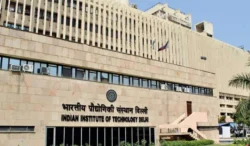
The British education system has been developing for several centuries and is now subject to high quality standards. After graduation from primary school, the students at the age of 11 years transfer in middle school. Every year the students take exams for general academic performance – Standard Assessment Tasks, or SATs: tests are developed and controlled by government agencies and are generally the same for everyone.
When a student finishes private school in the UK, he passes the General Certificate of Secondary Education (or GCSE) exams, receiving a certificate of incomplete secondary education – today in the UK this is the main, most common school document on education. The aim of GCSE is to check the level of knowledge and preparation for each of the main subjects (also it is possible to pass GCSE for choosing electives). The test divided in theory, practice and course work. There are two types of this test:
- GCSE (External examination) – adopted everywhere in the UK
- IGCSE (International GCSE) – complies with international standards, is more unified.
At the age of 14-16 years old the students begin planned, intensive preparation for GCSE certificate exams, which is recognized as the official document of secondary education in England, Northern Ireland and Wales. Usually 8-10 subjects from the school course are taken – exams are waiting for students at the end of the 11th year of study.
The highest score with honours is considered A *, the lowest score is U (the student did not qualify). Scores from D to G belong to the 1st level of qualification, and scores A *-C – to the second: it is the latter that are considered more prepared students and have higher chances of entering a good college or university (the most ranked educational institutions even sometimes do not accept a C grade, only A *-B).
In TOP secondary schools in the UK the following disciplines are offered for examination on the GCSE level:
- English
- English literature
- Mathematics
- Physics
- Chemistry
- Biology
- Foreign languages (French, German, Spanish, Arabian, Chinese, Greek)
- Geography
- Computer Science
- Drama and theatre
- Design
- Music
- Art
- Religious studies.
Enrolment process in TOP schools in the UK
To receive secondary education in England, the international students must provide the following documents:
- Extract of school grades for the last few years;
- Recommendations from teachers;
- International language certificate;
- Motivation letter;
- Completed school questionnaires.
It is better to start preparing for admission to British schools in advance, at least 1 year before the planned start of studying, and some schools take 2 years to collect documents and successfully prepare for the English exam.
A special feature when submitting documents is not only the academic success of the student, but merits in scientific activity, sports, creativity, etc., all because the main task of British education is the multifaceted development of the child’s personality. Therefore, schools are happy to welcome students who are not only eager to learn, but are also ready to actively participate in the life of the school.
Guardianship in secondary schools in the UK
A mandatory important condition for international students is the presence of a guardian – a British citizen. Being a legal representative, the guardian is engaged in the performance of parental duties, solves various issues and tasks that may arise in the process of studying and living in a British school.
Tuition fee in TOP schools in the UK
In the UK the academic year consists of 3 semesters, approximately 12 weeks: autumn, spring and winter. The students begin studying in September, and finish in the end of June or the beginning of July. In the middle of semesters the students are provided with small vacation – about one week.
The cost of studying in schools in the UK varies from 15,000 to 40,000 pounds per year. The tuition fee is stipulated by such factors, as school location, accommodation type, educational course, ranking of institution.
Usually, school fees are paid for trimesters, but you can also pay for a full year at a time, the main condition is that the school must receive payment before the start of studying. It is also worth considering that there will be additional costs, such as: student visa processing, medical insurance, air tickets and transfers.
List of schools in the UK – TOP 5
- Oxford International College
- Cardiff Sixth Form College
- St Paul’s Girls’ School
- Westminster School
- Concord College






